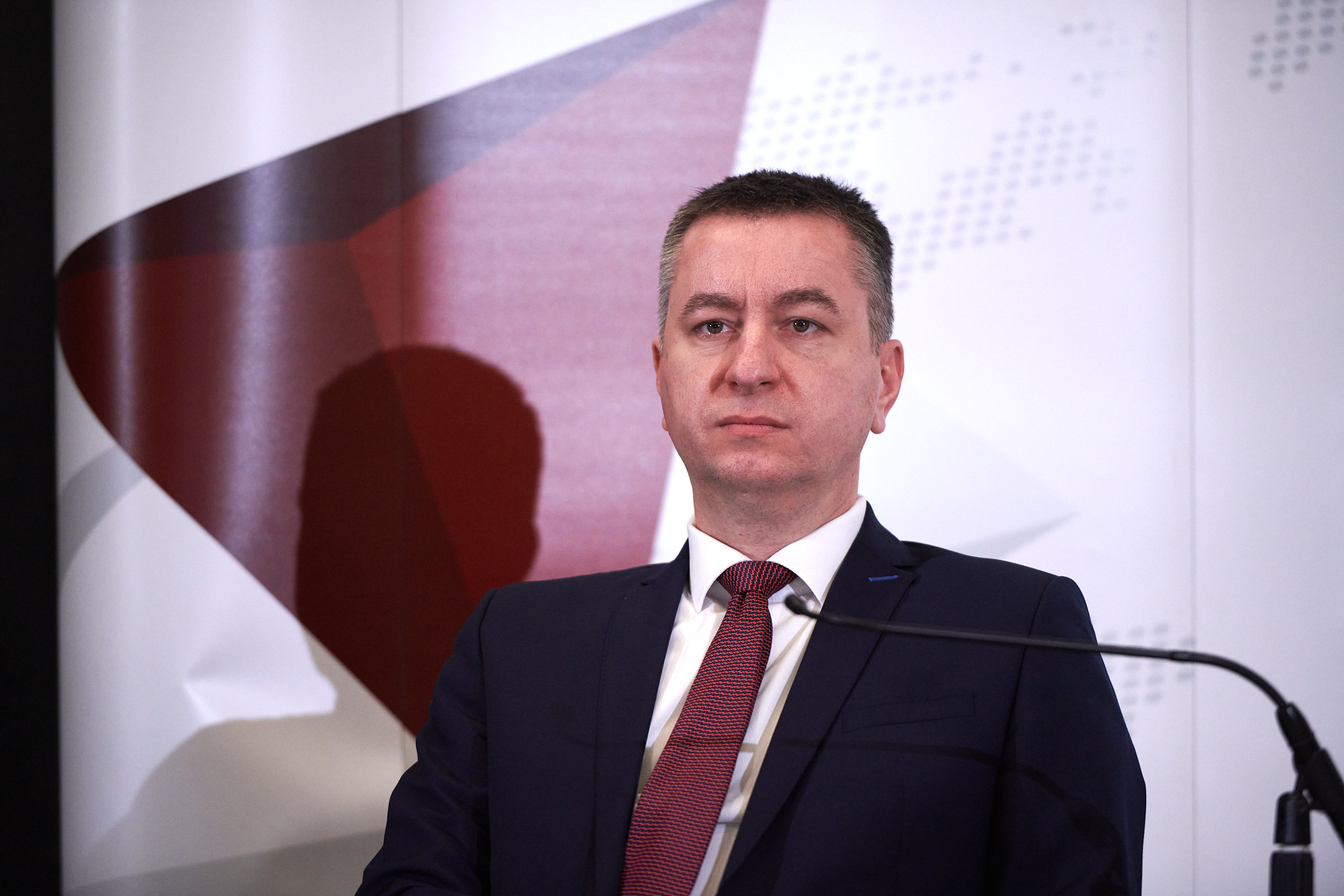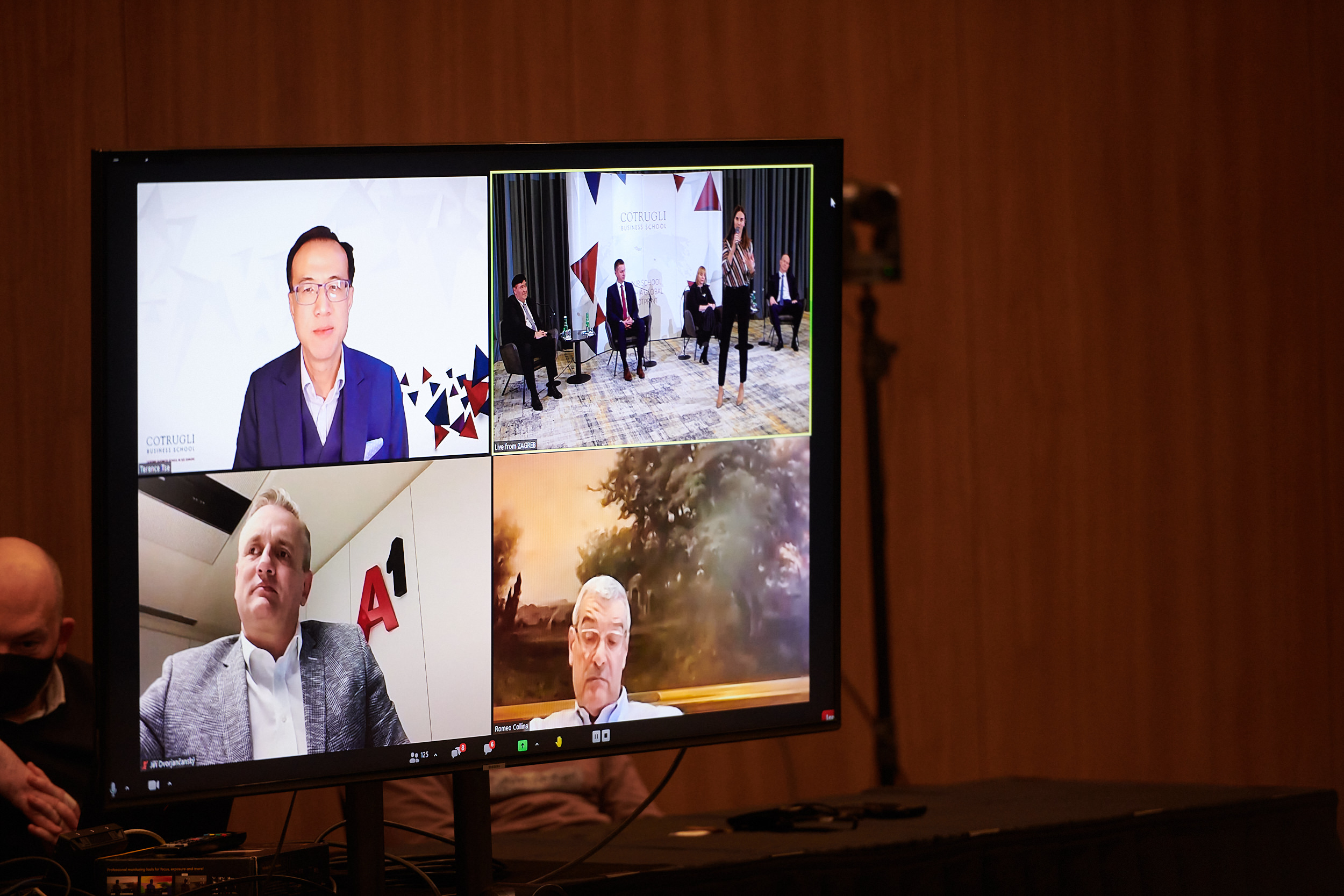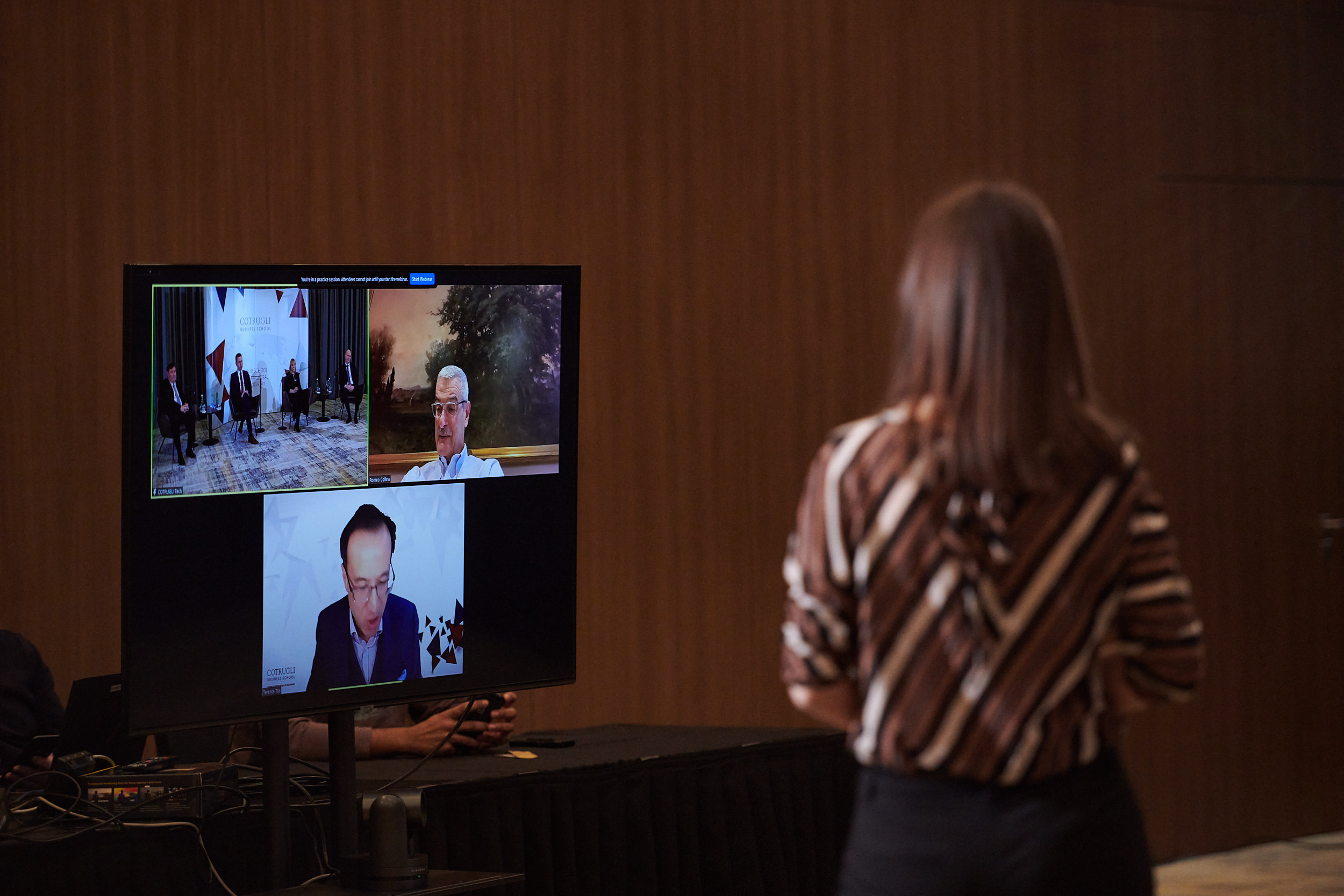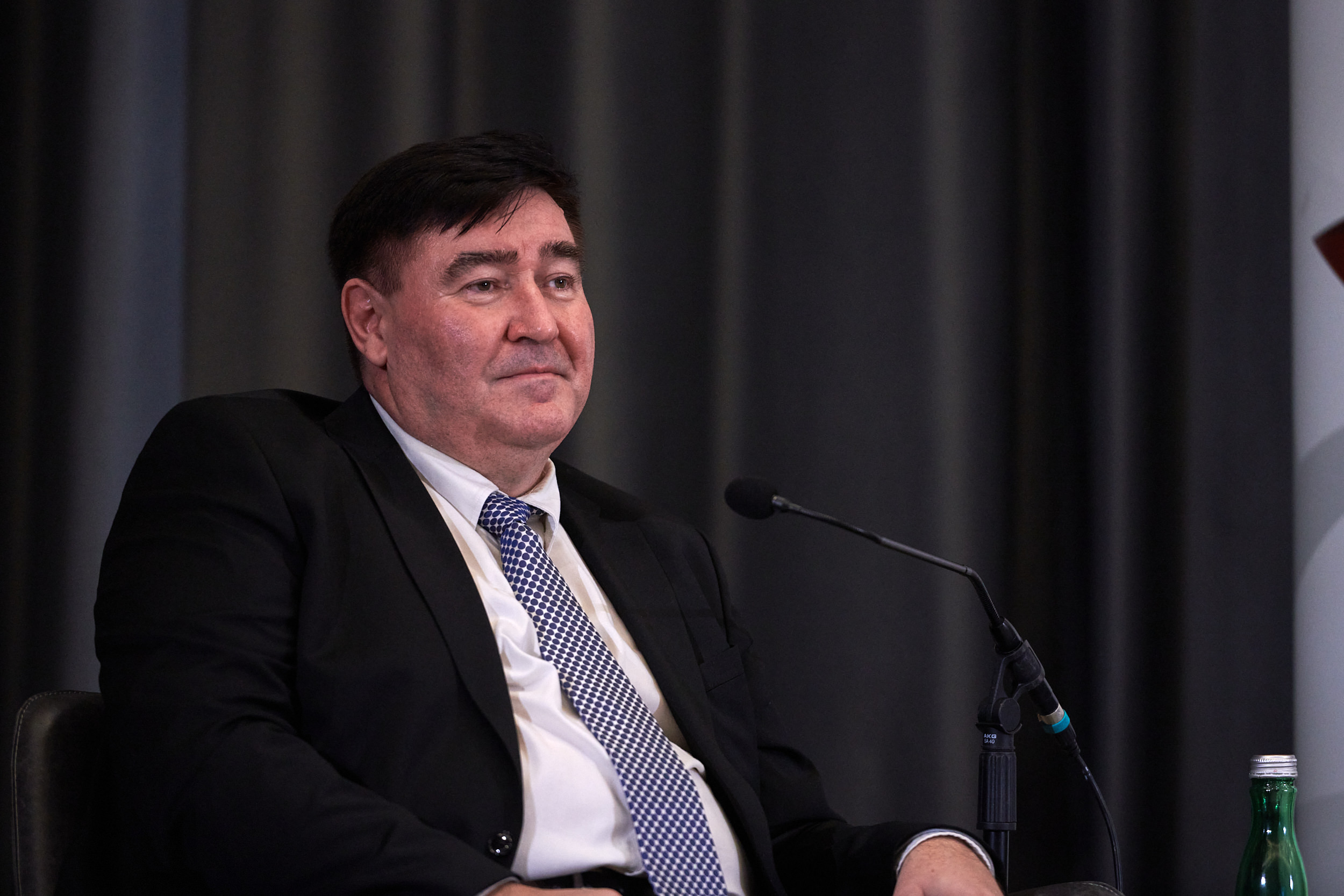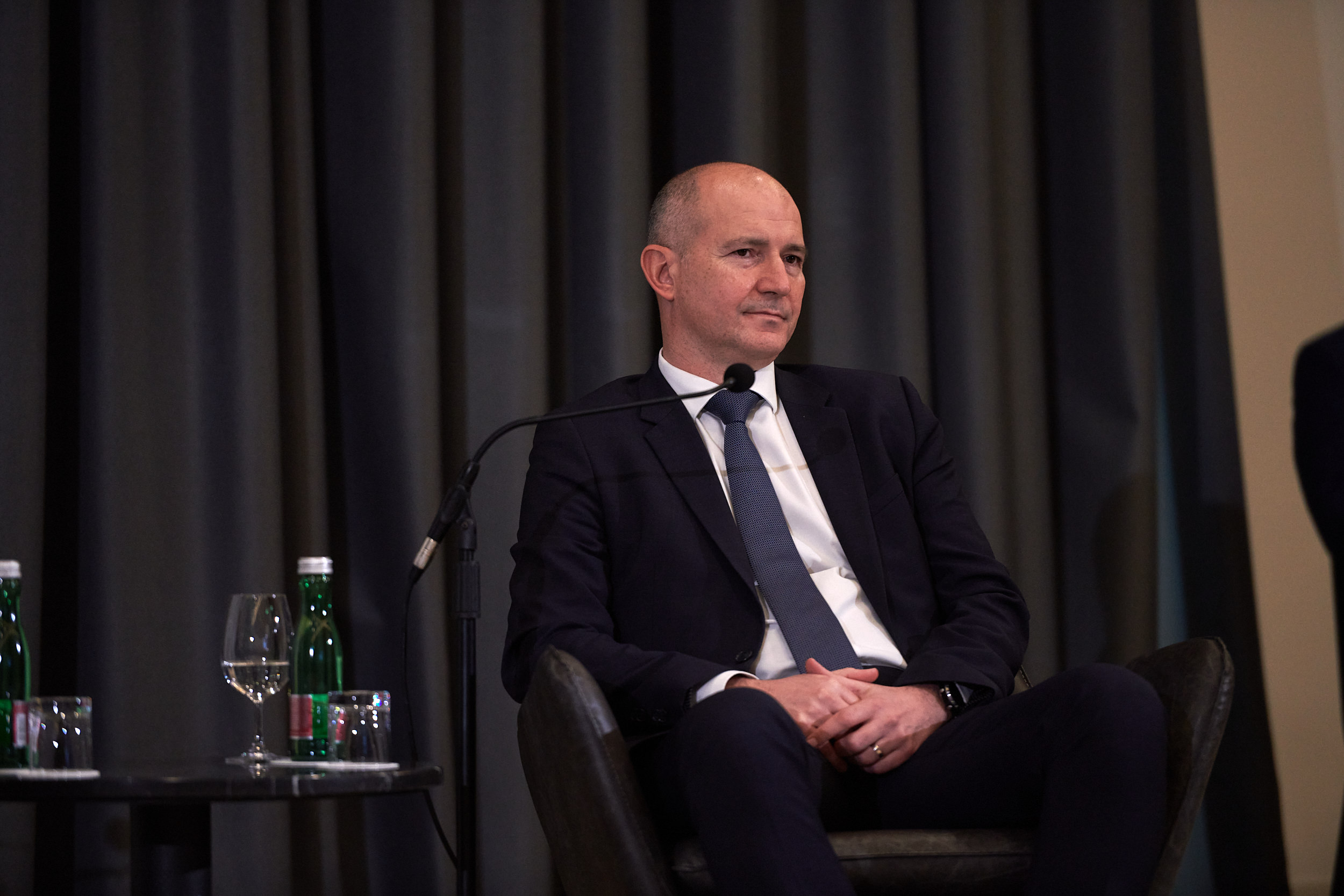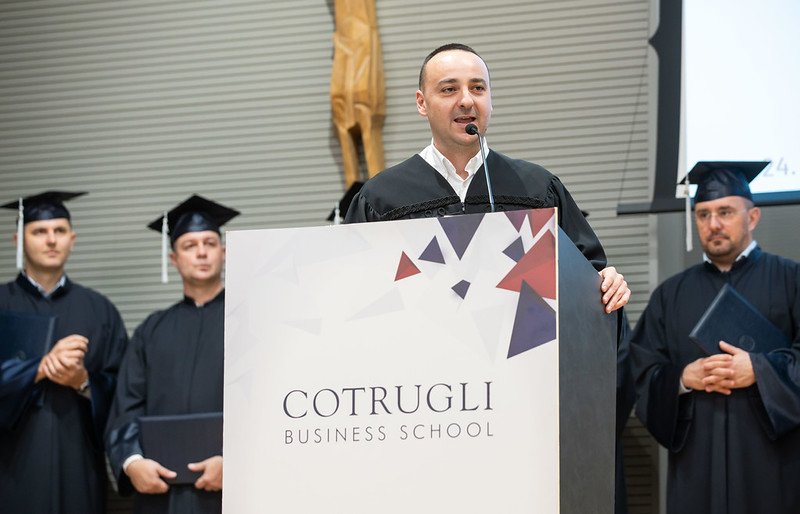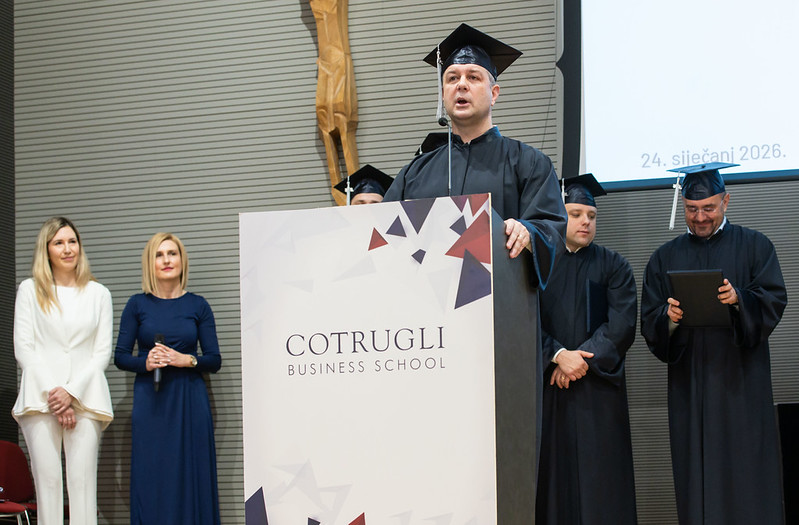
EXPERT CORNER: Tips to prepare for the future by our professor Terence Tse, PhD
03/02/2021
EXPERT CORNER: What crisis made us understand?
17/02/2021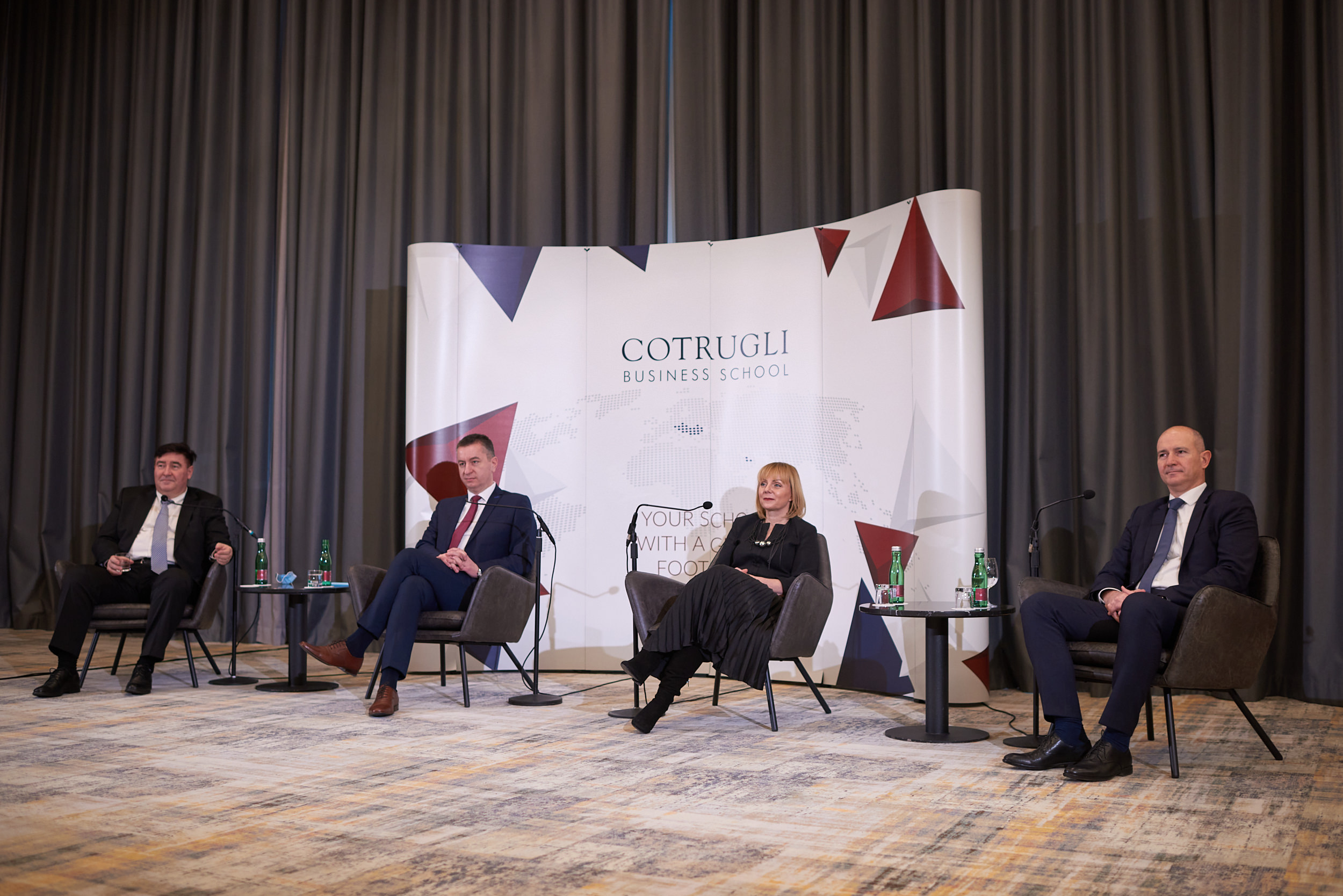
COTRUGLI Hosts Virtual CEO Panel on Business Resilience
On February 9, 2021, COTRUGLI Business School hosted a virtual CEO panel titled “Navigating Through a New Business Landscape.” The event was moderated by visiting professor Dr. Terence Tse, who guided a discussion on how businesses can remain resilient in times of crisis.
The panel featured top executives from leading companies:
- Fabris Peruško (Fortenova grupa)
- Jiří Dvorjančanský (A1 Hrvatska)
- Mihael Furjan (PLIVA Hrvatska)
- Romeo Collina (Zagrebačka banka)
- Sándor Fasimon (INA)
- Zrinka Bokulić (Aminess Hotels & Campsites)
Embracing the New Normal
In his opening remarks, Dr. Tse emphasized that the pandemic has permanently changed the business landscape. He noted that remote work is here to stay and that vaccination should not be viewed as the sole exit strategy.
Industry-Specific Challenges
Each panelist reflected on the impact of the pandemic on their industries:
- Sándor Fasimon highlighted the oil and gas industry’s struggles with falling prices and reduced demand.
- Fabris Peruško explained how Fortenova’s food businesses were hit by the collapse of the tourism sector and repeated closures of the HoReCa channel. He added that retail trends were shaped by changing consumer behavior, particularly the spike in online shopping at Konzum, which strained logistics capacities.
- Zrinka Bokulić called the tourism season a success despite the loss of the pre- and post-season.
- Mihael Furjan challenged the belief that the pharmaceutical industry benefited from the pandemic. He said that revenue growth in Q1 2020 was driven by fear-induced stockpiling, while overall drug use declined due to fewer medical appointments. Only vaccine producers saw sustained growth.
- Jiří Dvorjančanský offered a more optimistic view. He noted that the telecom sector in Europe experienced only minor revenue declines (0–5%) and benefited from increased demand for data and infrastructure upgrades.
- Romeo Collina shared that Zagrebačka banka prioritized employee safety and client communication while offering financial moratoriums to support individuals and businesses.
Turning Crisis Into Opportunity
Panelists also discussed how they adapted and innovated during the crisis:
- Fasimon explained that INA used the crisis as a chance to transform its business model and strengthen long-term sustainability.
- Bokulić said her team took the opportunity to review and improve internal processes.
- Peruško pointed out that Fortenova’s food retail operations—especially online—faced unique challenges related to quality, freshness, and logistics.
The Human Factor
The conversation concluded with a shared reflection on the human side of business resilience. Peruško, Collina, and Dvorjančanský all agreed that agility, mental and physical well-being, and even a sense of humor played critical roles in managing the ongoing crisis.
